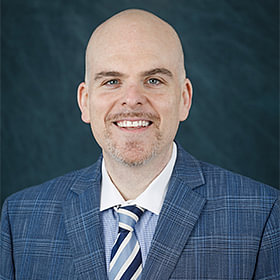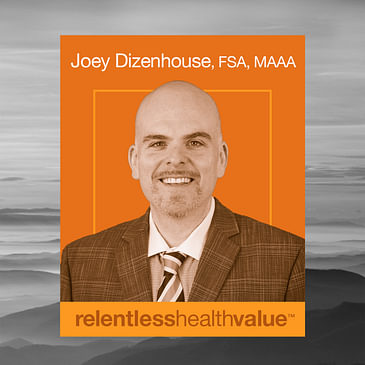For a full transcript of this episode, click here.
For a deep dive into the way back backstory here, listen to the show with Dea Belazi, PharmD, MPH. That’s episode 293, and it’s entitled “Game Theory Gone Wild,” because gone wild is what has happened with pharma manufacturer co-pay assistance programs.
Don’t forget that the original intent of the first chess move here was by pharma manufacturers to circumvent basically PBM (pharmacy benefit manager) formulary restrictions, because the leverage PBMs have is access and patient out-of-pocket costs—and let’s focus on the out-of-pocket costs right now. If a drug is on formulary, patients can get said drug for a lower relative price. Drugs not on formulary are abandoned at the pharmacy counter quite often because patients cannot afford them, and this is by design. This patient abandonment of their prescriptions is what gives the PBM leverage when negotiating with Pharma. If Pharma doesn’t play by PBM rules, they get kicked off the formulary; and then patients can no longer afford to get their meds and pharma market share tanks.
So, the original intent of co-pay cards was for Pharma to say, “Ha ha, talk to the hand, you PBMs. You can not put us on formulary if you want, but I’m gonna lower the out-of-pocket costs all by meself with me co-pay cards. If you, PBM, force a $300 co-pay or whatever, which is way too high for most patients, I, Pharma, will pay $275 of that (or maybe all $300) a month on the patient’s behalf with my co-pay card program. So, patients are now left with a reasonable amount that they should be able to afford, and my pharma drug’s market share is unhindered.”
I think one thing to keep in mind here as we evaluate the net impact is that not all situations are the same. Let’s say there’s two main scenarios—and keep both of these in mind during the conversation that follows with Joey Dizenhouse as you consider the impact on plan sponsors and patients vis-à-vis their premiums and also on patients/members in the short term.
Scenario #1: Let’s say there’s one drug out there for a particular condition. One drug. And on some plan, that one drug has a ridiculously expensive out-of-pocket cost, say, $8000 or something like this, whatever their deductible or the max out-of-pocket is for that particular member on that particular plan. And this is $8000 every year if this is a chronic condition, which makes it different than someone hitting their deductible this year because they had a knee replacement or whatever. In this first scenario, we’re talking about patients or their kids who in perpetuity need a drug and who effectively just had their salary reduced year over year by $8000 or whatever. If they want the med, they have no other option than this huge out of pocket. That’s one situation.
Scenario #2: Let’s say there’s another really expensive drug, but in this scenario, there’s a generic equivalent or there’s some other brand that costs $70 and works for most patients. So, yeah … now we have patients who get a co-pay card and are thus incented by their low or no out of pocket to get a drug that is effectively a rip-off. So, now the plan is paying something upwards of $8000 instead of $70. And it’s not like the patient got a better product. It’s upwards of 8000 wasted plan dollars that really don’t accrue any better health.
And so, this is really where our story begins.
A couple of definitions here:
Maximizer refers to the entity running a maximizer program. It’s a noun. It’s a who. Oftentimes the maximizer is the PBM, but not always.
Joey talks about two kinds of maximizer programs: One is what Joey calls a spread model, and then there’s also the transparent model.
We also in the podcast that follows talk about a scheme which is often pitched to plan sponsors that I’m going to call the “the drug’s not covered” approach.
At the end of the show, we come up with three bits of advice. And here they are, spoiler alert:
1. Buyer beware. If you are a self-insured employer or some other entity who is purchasing these maximizer programs, purchasing due diligence is required. If your vendor makes more money the more a drug costs, yeah, you have misaligned incentives and the chances of you (the plan sponsor) and all of your members getting screwed is on the high side. (Eric Bricker, MD, shows how this could work in this video about the Cigna “transparent” CostVantage offering.)
2. As Lauren Vela said also in episode 406, everybody always thinks that their contracts are amazing. It’s everybody else’s contracts that suck. You ask a roomful of HR folks if their PBM contracts are above average, and the whole room raises their hands. This ain’t Lake Wobegon, folks. Don’t kill the messenger.
3. Get on the ground and actually talk to plan members who are taking these drugs or who have kids taking drugs that are covered by these maximizer programs or covered by the “it’s not covered” alternative funding programs. I certainly hope no one listening is taking the word of the program sponsor on how satisfied plan members are, especially with all these class action lawsuits afoot.
My guest today, as aforementioned, is Joey Dizenhouse, FSA, MAAA. He is an actuary by background. He serves as CEO of SlateRx, which is a pharmacy benefit experience provider, or a PBX, as they call it. He is also head of HealthTrust IHP.
Also mentioned in this episode are Dea Belazi, PharmD, MPH; Eric Bricker, MD; Lauren Vela; Andreas Mang; and Kollet Koulianos, MBA.
You can learn more at SlateRx.

As president and chief executive officer at SlateRx, Joey is responsible for driving the organization’s mission of revolutionizing the pharmacy benefit experience. With a key focus on servant leadership and innovation, he seeks value for SlateRx’s clients and their covered lives across the complex pharmacy supply chain. He also provides strategic guidance for partner organization HealthTrust.
At HealthTrust, Joey led the Insurance, Human Capital, and Pharmacy (IHP) business segment, managing more than $15 billion in annual drug purchasing. Prior to HealthTrust, Joey spent 15 years at a large professional services consulting firm in a number of health and welfare leadership roles, serving many organizations during his tenure, including several from the Fortune 100.
Joey is a frequent public speaker on subject matter related to pharmacy insurance, benefits strategies, and the US healthcare landscape. He is a fellow of the Society of Actuaries, member of the American Academy of Actuaries, and a licensed life and health insurance agent across all 50 states.
06:21 How was the first iteration of maximizers conceived?
10:59 “I’d always encourage you to come back to the underlying incentives.”
11:18 What does maximizer acceleration look like?
12:24 What are the two kinds of maximizers?
12:43 What is the spread model for a maximizer?
13:02 What is the transparent model for a maximizer?
15:26 “Ask the questions: How do you make money? Prove it!”
15:56 EP419 with Andreas Mang.
16:25 How might Pharma be making more money with maximizers?
26:14 What is the “it’s not covered” approach?
32:29 “The right kind of program has been properly narrowed.”
33:51 Is there a purpose that some of these programs can serve, issues aside?
35:57 How does a free drug program actually cost money?
You can learn more at SlateRx.
Joey Dizenhouse discusses #pharmacybenefits, #employer #costsavings, and #outofpocket costs on our #healthcarepodcast. #healthcare #podcast #pharma #healthcareleadership #healthcaretransformation #healthcareinnovation
Recent past interviews:
Click a guest’s name for their latest RHV episode!
Benjamin Jolley, Emily Kagan Trenchard (Encore! EP392), Cora Opsahl (Encore! EP372), Jodilyn Owen, Ge Bai, Andreas Mang, Karen Root (Encore! EP381), Mark Cuban and Ferrin Williams, Dan Mendelson (Encore! EP385), Josh Berlin




